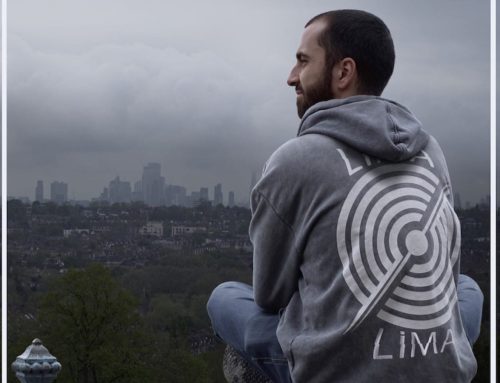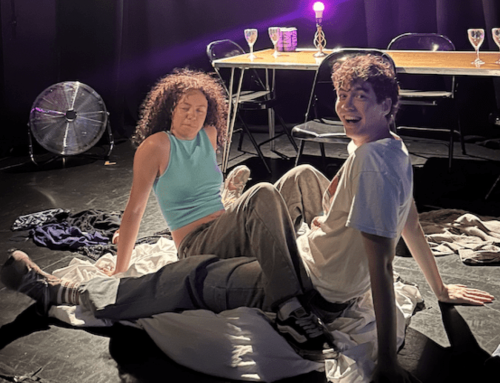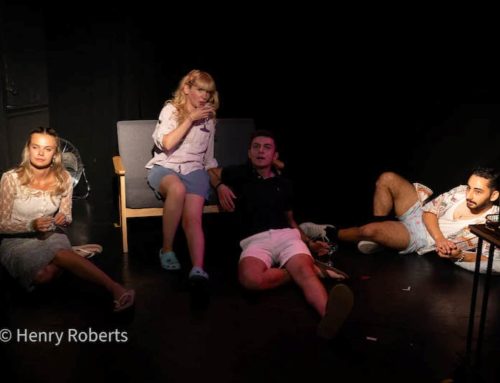Franz Kafka’s trademark absurdity, sense of alienation from society, and all-pervading tone of anxiety are omnipresent in his final published short story The Hunger Artist, here adapted and performed as a 60-minute monologue by actor Jonathan Sidgwick. Helpfully the show opens with a brief pre-recorded summary of Kafka’s life and writing for those unfamiliar with his work.
The Hunger Artist tells the tale of a professional faster who inhabits a pocket-sized, straw-lined cage and starves himself in public as an act of artistic expression. The man is at the top of his game, perhaps the greatest hunger artist there has ever been. He draws vast crowds in Paris, London, Barcelona and more. Yet despite the extreme lengths of his starvations, 40-days is as much as his impresario manager and mentor will allow, he feels perpetually misunderstood and unappreciated. Spectators doubt his authenticity. Families jeer him. Season tickets holders (“usually butchers” we hear) keep their eagle eyes fixed on his cage looking for secretly seconded snacks. Not that an artist of his calibre would dream of breaking the rules. His is a life of whole-hearted creative commitment, writ large.
As often happens with art, fashions change. Public interest in fasting wanes, indeed his art begins to invite revulsion rather than admiration. The artist joins a circus where he is relegated to a minor attraction, largely ignored among the multitude of wild animals also on display. Ultimately, the artist’s prolonged fasting leads to his physical decline. This is about as broad an expression of existential dissatisfaction with life you will find anywhere.
Sidgwick certainly looks the protagonist’s part: barefoot and bare chested, straggly hair, wispy beard, heavy black circles under his eyes, straw clinging to unwashed skin. He wheezes, shudders, gasps for breath, and rolls his eyes as if he is seeing, hearing, or feeling things that the rest of us are missing. It is a committed performance, from a fine actor, of a man on the verge of total psychological and physical collapse.
But one wonders whether Sidgwick’s adaptation has missed a trick. Aside from a brief segment of dialogue with a zookeeper late on we hear nothing from those watching or managing the man. There are no relationships on view, just the artist himself. Fine for a work on the page but on stage it translates into a lack of light and shade. Mark Glentworth’s top-notch accompanying music – barely audible drum, seemingly random percussion, eerie piano and strings – evokes unease and isolation without ever feeling intrusive.
Writer: Franz Kafka (adapted by Jonathan Sidgwick)
Director: Jonathan Sidgwick
More Recent Reviews
Playfight. Soho Theatre.
Writer Julia Grogan’s breathtakingly assured debut play arrives at Soho Theatre following stellar reviews at the Edinburgh Fringe and [...]
All The Happy Things. Soho Theatre.
Naomi Denny’s three-hander comedy-drama All The Happy Things covers familiar themes within a recognisable premise. A grieving protagonist comes [...]
Telly. Bread and Roses Theatre.
The challenge with absurdist comedy is that many people do not find it funny. Laughing at the sheer weirdness [...]






